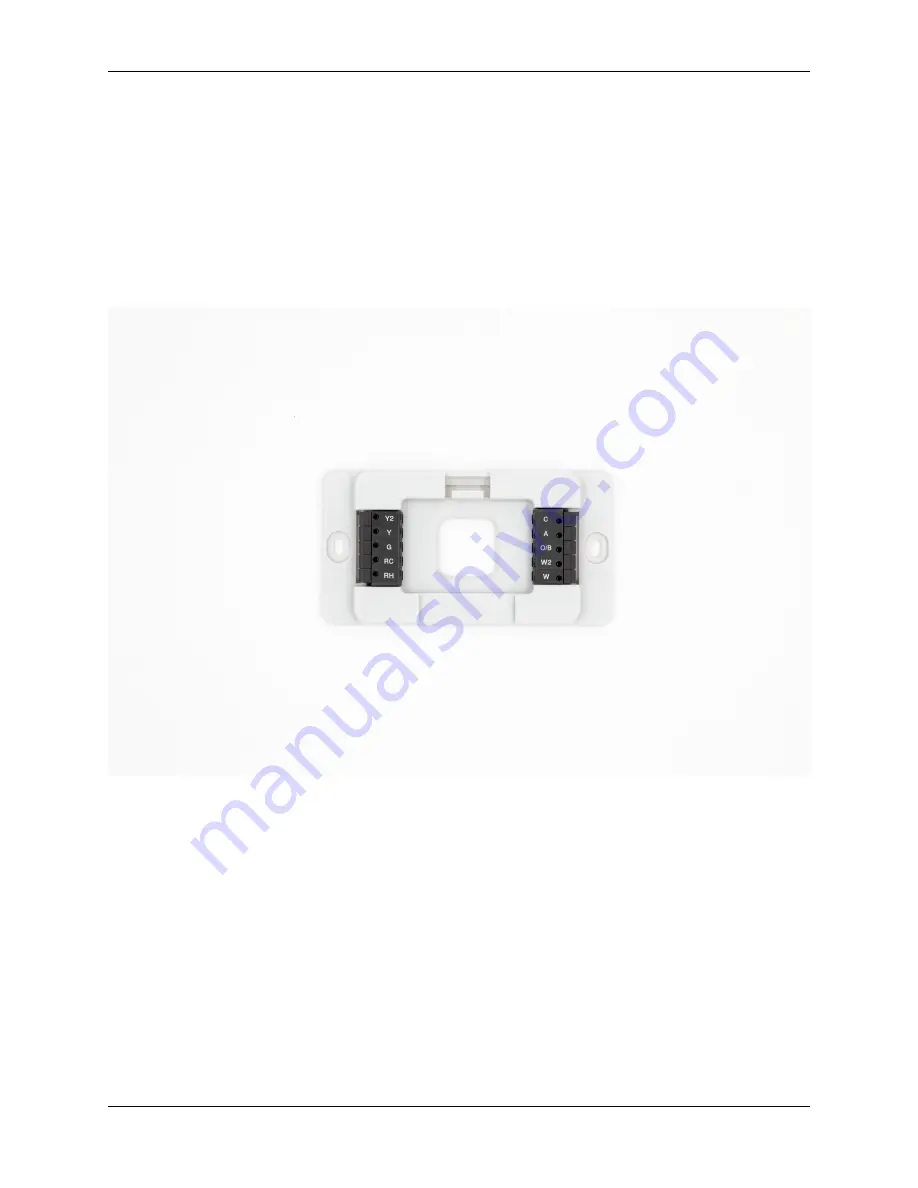
CT200-G1 User Guide
Mounting Plate
1. Carefully pull the labeled wires through the center hole in the Mounting Plate.
2. Position Thermsotat for best appearance to cover the hole in the wall.
3. Mark first and drill a 1⁄4 in. (6mm) hole at each screw location.
4. If you are mounting the Thermostat to sheet rock or if you are using the old mounting holes, use the
plastic anchors provided.
5. Attach the Mounting Plate to the wall with the screws provided.
Fig. 3: Thermostat Mounting Plate
4
Chapter 1. Installation Guide
Summary of Contents for CT200-G1
Page 1: ...CT200 G1 User Guide Radio Thermostat Jul 29 2019 ...
Page 2: ......
Page 4: ...ii ...
Page 18: ...CT200 G1 User Guide 14 Chapter 1 Installation Guide ...









































